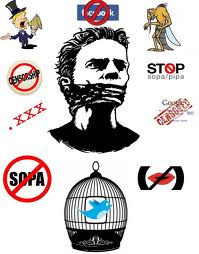Censorship of Social Media Fans Public Unrest
By
siliconindia | Tuesday, 03 July 2012, 12:32 Hrs

London: Is social media censorship a means to quell a modern uprising? Politicians and law enforcers thought so in the context of last year's political turbulence.
But recent research suggests that uncensored citizens experience less violence and longer periods of peace between outbursts than communities subject to censorship.
A consensus is forming around internet censorship in the wake of last year's uprisings, extending from the Arab Spring to the UK, according to Antonio Casilli, associate professor in digital humanities at Telecom ParisTech, France, and Paola Tubaro, senior lecturer in economic sociology at the University of Greenwich, UK, the journal Bulletin of Sociological Methodology reports.
"In the absence of robust indicators as to the rebelliousness of a given society, the choice of not restricting social communication turns out to be a judicious one for avoiding the surrender of democratic values and freedom of expression for an illusory sense of security," say Casilli and Tubaro.
The authors used sophisticated computer modelling to find out if the assumptions that actors' use of media - such as Twitter - fuelled mob action through greater awareness were true, according to a Greenwich statement.
The researchers used state-of-the-art agent-based modelling as a starting point. Political conflict is often described as cumulative, involving 'escalating' conflict and sometimes ending with regime change.
In Casilli and Tubaro's computer simulation, censorship narrows down vision. It interrupts the flow of communication and decreases the ability of individuals to appreciate their environment. In this sense, censorship blinds social actors to their own context.
The researchers found that all possible scenarios led to initial outbursts of violence but how the situation evolved was significantly influenced by government social media censorship.
In a total censorship scenario, similar to the Egyptian riots, violence levels remained at a maximum. Stronger censorship led to an increase in the average level of endemic violence over time.
Source: IANS
